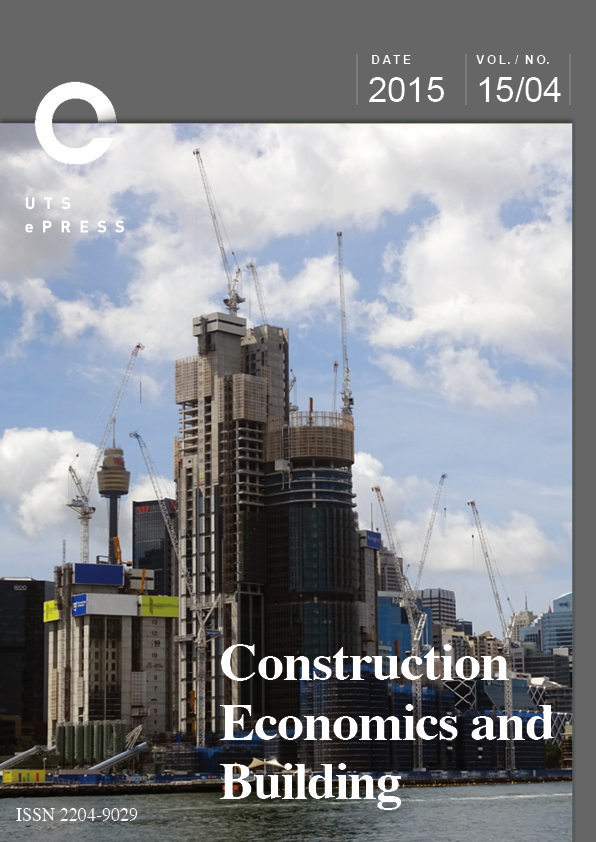Construction Procurement: Modelling Bidders’ Learning in Recurrent Bidding
Main Article Content
Abstract
Construction remains a significant area of public expenditure. An understanding of the process of changes in construction pricing, and how the process can be manipulated through the release of bidding feedback information is vital, in order to best design clients’ procurement policies. This paper aims to statistically model inexperienced individual bidders’ learning in recurrent bidding under partial and full information feedback conditions. Using an experimental dataset, the developed linear mixed model contains three predictor variables, namely: time factor, information feedback conditions, and bidding success rate in the preceding round. The results show nonlinearity and curvature in the bidders’ learning curves. They are generally less competitive in time periods after a winning bid with lower average bids submitted by those subjected to full information feedback condition. In addition, the model has captured the existence of heterogeneity across bidders with individual-specific parameter estimates that demonstrate the uniqueness of individual bidders’ learning curves in recurrent bidding. The findings advocate for adequate bidding feedback information in clients’ procurement design to facilitate learning among contractors, which may in turn lead to increased competitiveness in their bids.
Article Details
Section
Authors who publish with this journal agree to the following terms:
a) Authors retain copyright and grant the journal right of first publication with the work simultaneously licensed under a Creative Commons Attribution License that allows others to share and adapt the work with an acknowledgement of the work's authorship and initial publication in this journal.
b) Authors are able to enter into separate, additional contractual arrangements for the non-exclusive distribution of the journal's published version of the work (e.g., post it to an institutional repository or publish it in a book), with an acknowledgement of its initial publication in this journal.
c) Authors are permitted and encouraged to post their work online (e.g., in institutional repositories or on their website) prior to and during the submission process, as it can lead to productive exchanges, as well as earlier and greater citation of published work (See The Open Access Citation Advantage Service). Where authors include such a work in an institutional repository or on their website (ie. a copy of a work which has been published in a UTS ePRESS journal, or a pre-print or post-print version of that work), we request that they include a statement that acknowledges the UTS ePRESS publication including the name of the journal, the volume number and a web-link to the journal item.
d) Authors should be aware that the Creative Commons Attribution (CC-BY) License permits readers to share (copy and redistribute the work in any medium or format) and adapt (remix, transform, and build upon the work) for any purpose, even commercially, provided they also give appropriate credit to the work, provide a link to the license, and indicate if changes were made. They may do these things in any reasonable manner, but not in any way that suggests you or your publisher endorses their use.
